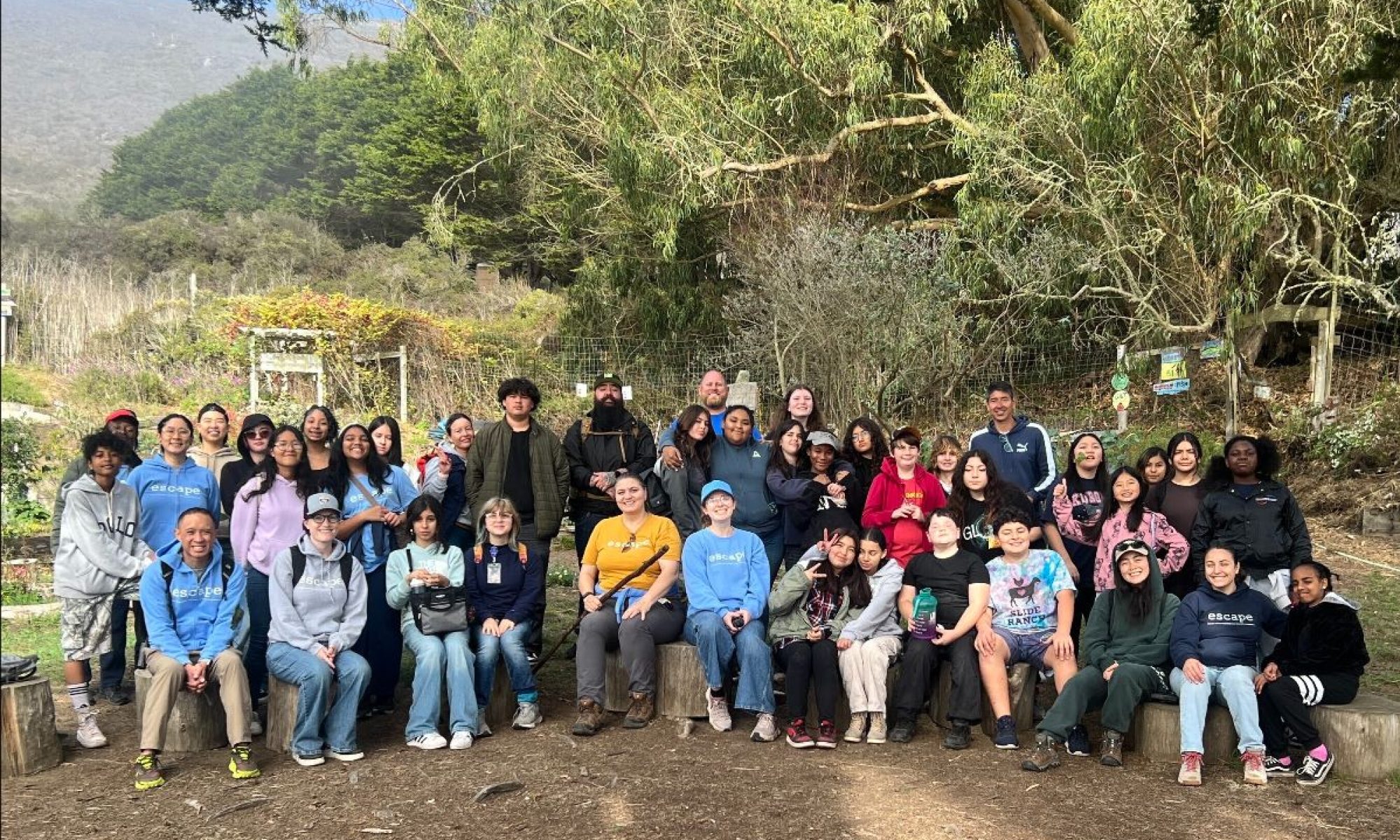The E.S.C.A.P.E. Club (Environmental Science, Conservation, And Photographic Excursions) is an outdoor education, extra-curricular group formed in Richmond, CA in 1999. Since 2010, students at Lovonya DeJean Middle School in downtown Richmond have comprised the membership. Led by teachers John Iwawaki and Jason Lau, students attend weekly after school meetings and monthly study trips around Northern California.
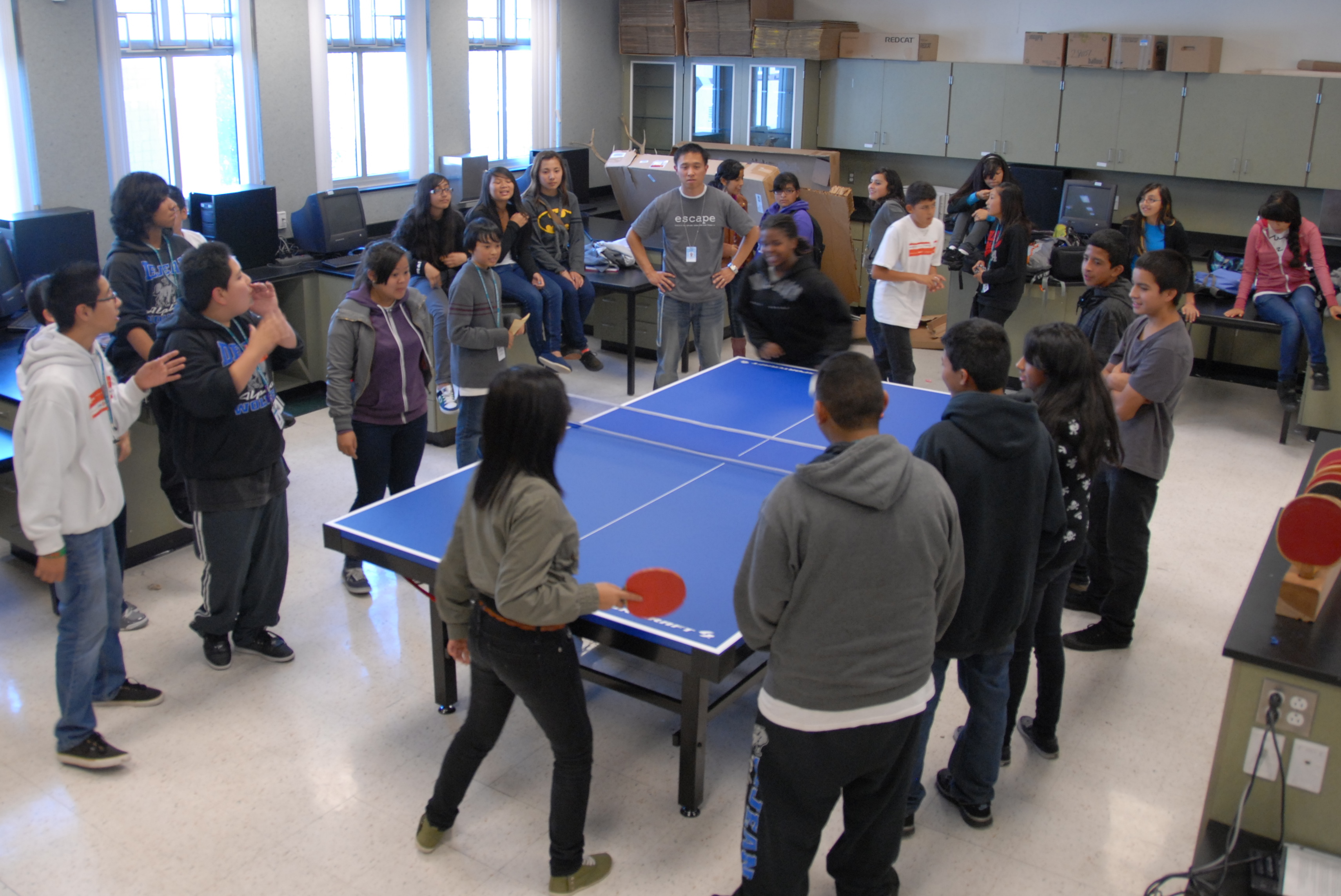 ESCAPE Club students playing ping pong after the meeting.
ESCAPE Club students playing ping pong after the meeting.
Students meet weekly after school with Iwawaki, Lau, and other teachers involved. Meetings focus on preparation and pre- loading information about upcoming destinations, with lessons emphasizing ecology, conservation, history, and geography. Typically, up to 60 or more students attend each after school meeting.
Time is also given to develop digital presentations, and research destinations and relevant issues on the internet. Following the learning time, students have the opportunity to stay and play games, listen to music, work on homework, or just have social time together. Ping pong and foosball are main components!
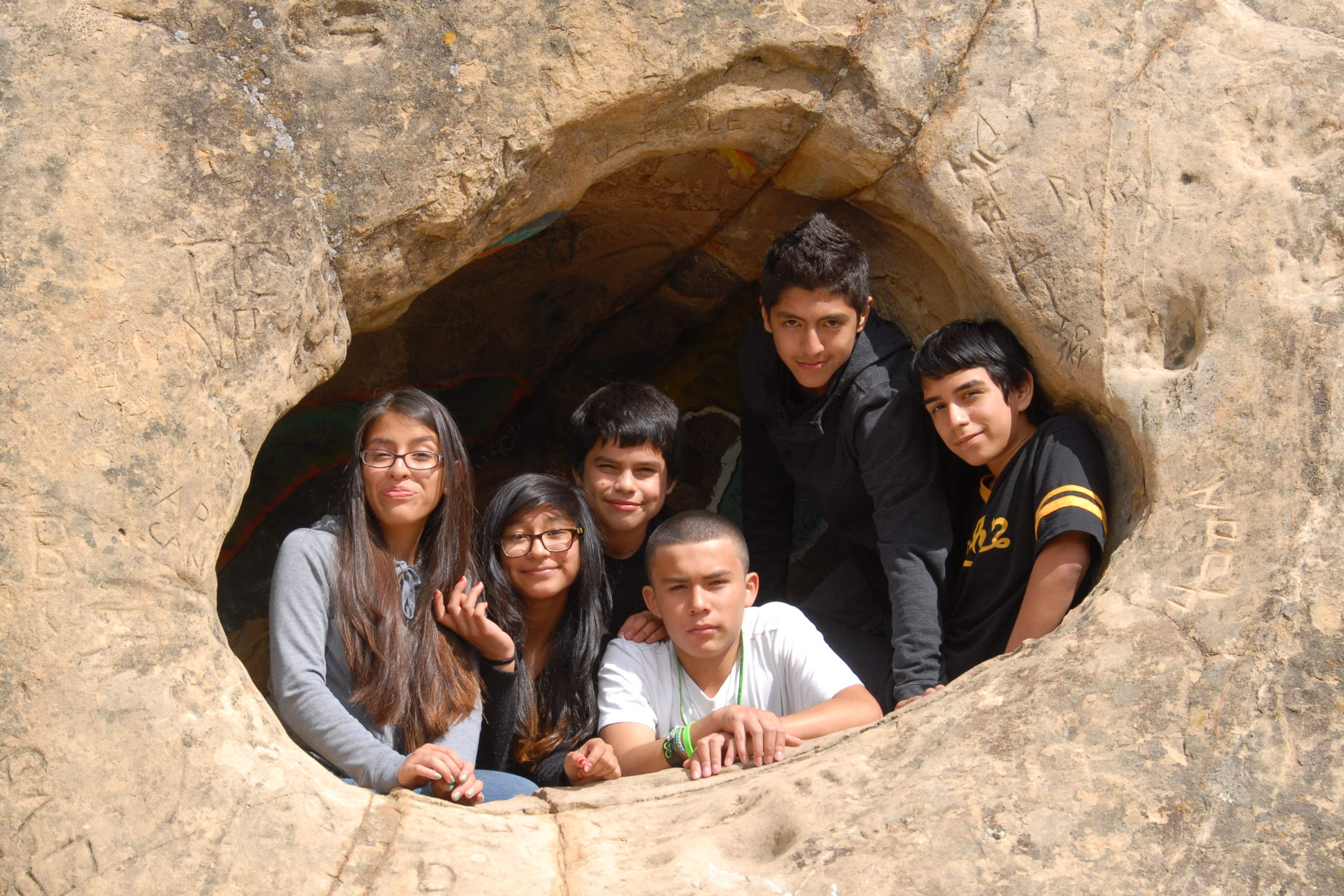 ESCAPE Club students in a wind cave at Rock City
ESCAPE Club students in a wind cave at Rock City
The highlights of being in the club are the monthly excursions. Since 1999, the club has gone on well over 100 field trips.
In a typical year, destinations include:
Mt. Diablo State Park
• Slide Ranch (a teaching farm)
• Monterey Bay Aquarium
• SLEWTHS (a sea lion research facility)
• Año Nuevo State Reserve
• Snow sledding in the Sierras
• Fort Point National Historic Site
• The Marine Mammal Center
• Point Reyes National Seashore
• Yosemite National Park (camping overnight)
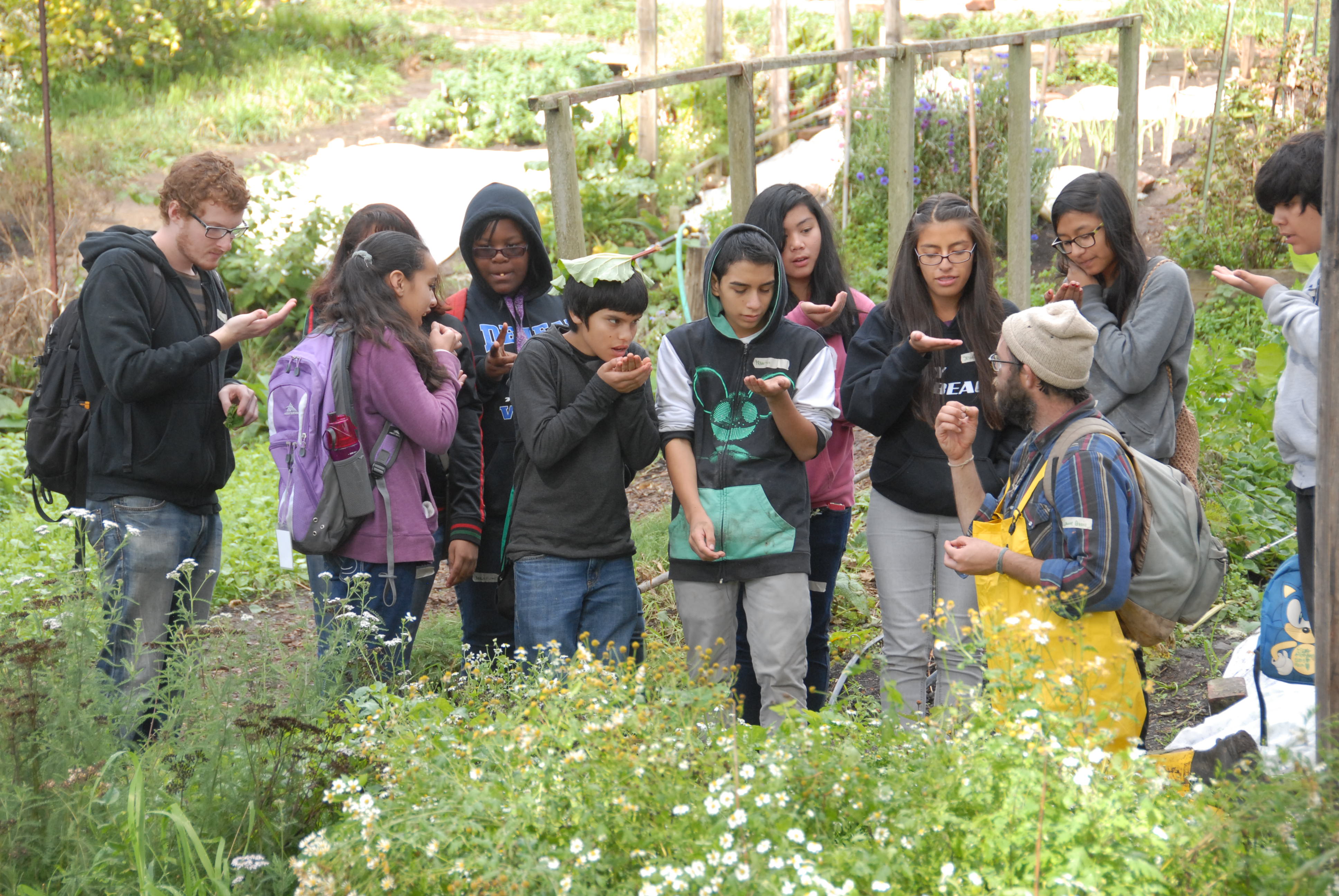
Students are generally transported in small groups by private vehicles, driven by teachers, parents, and other community volunteers. On average, eight to ten cars carry 30-40 students. Teachers and chaperones are not compensated in any way for their time; all participation is strictly on a volunteer basis. Where available, students participate in classes or tours. Other time is given to free exploration, hiking, and taking pictures.
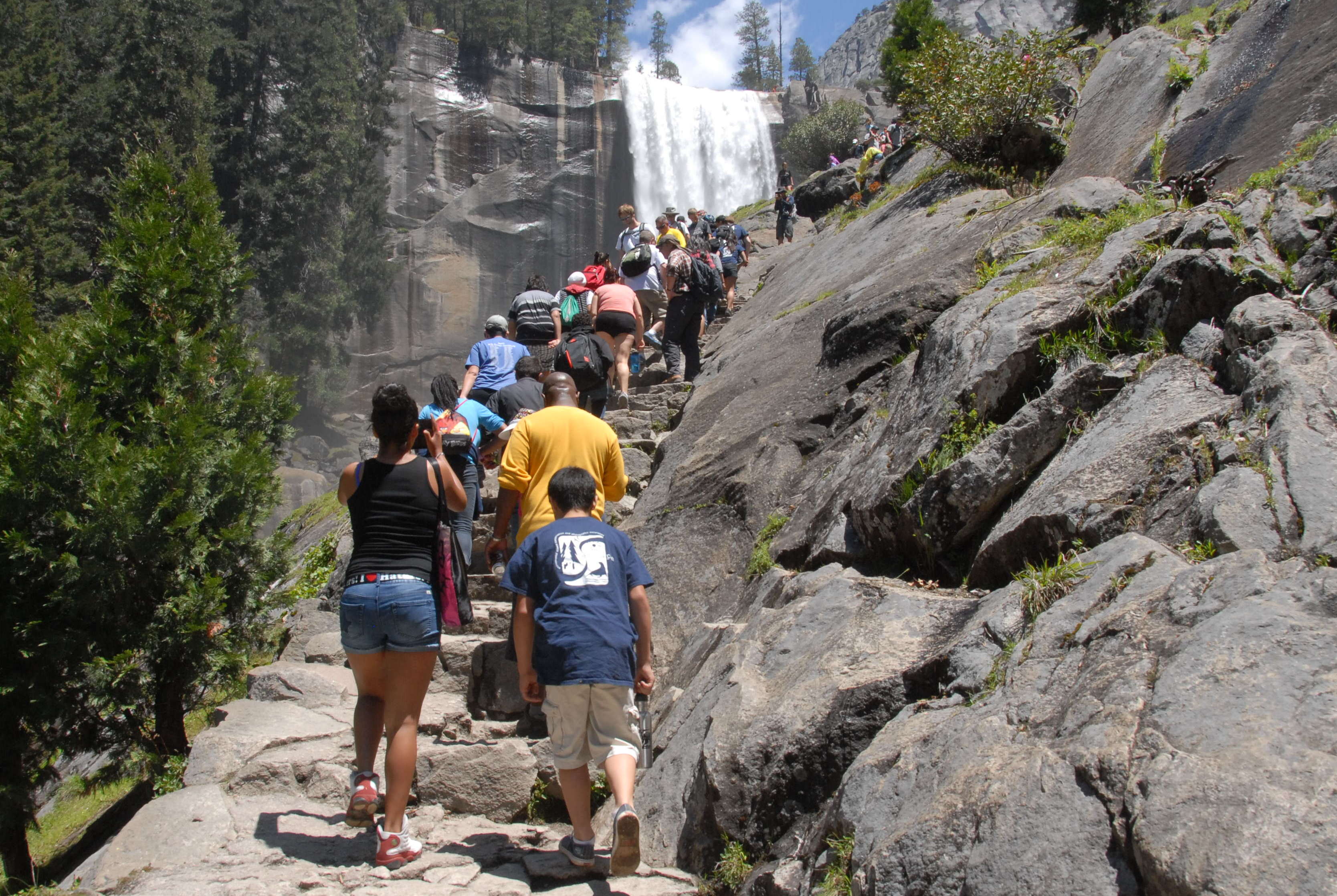
For many of the students, these destinations and experiences are completely new. These new experiences broaden the students’ world, giving them confidence, and perspective. Many find a sense of belonging on campus during an age where many feel insecure. In small groups on long days together, relationships are developed and deepened, both student-student and student-teacher. For many students, the trips provide relevance to what they are learning in school, and can increase personal investment in their education. And students are exposed to possible career paths in environmental science.
Following each trip, students are responsible to respond and reflect on their experience in one of the following ways:
- Write a summary
- Draw a picture
- Write a persuasive paragraph or design a brochure
- Write a thank you letter to a chaperone, sponsor, or host from the destination
- Write a poem
If you have any questions or would like to contact us, please use the following form:
